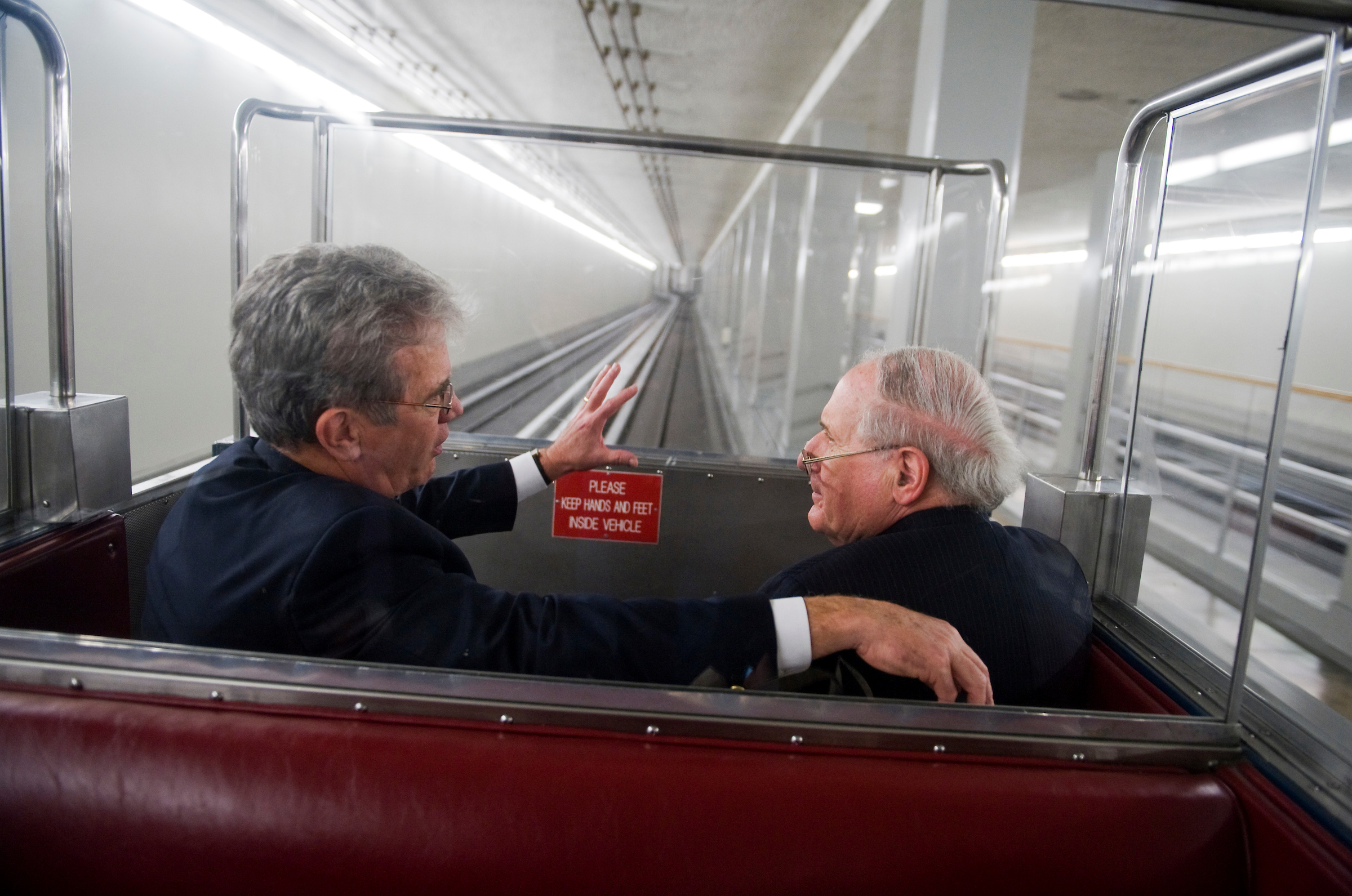Democrats Can’t Check the White House Alone. Neither Can Republicans
An overhaul of oversight is overdue, but partisanship isn’t what the Founders had in mind

OPINION — Congress is in desperate need of a course correction. Some may think it’s about to happen, because the Democrats have now taken control of the House. But we’re referring to a different kind of course correction. For the past ten years or so, Congress has largely ignored its constitutional responsibility to serve as a check on the excesses of the executive branch and to do so in a bipartisan manner. That’s what needs to change.
We both served for many years in the Senate, and here’s what we observed: When oversight hearings were held more for political purposes than for real fact-finding purposes, they didn’t work. Hearings like these may have been the exception rather than the rule, but they damaged Congress’ reputation. They didn’t uncover the facts, and they didn’t have the confidence of the American people.
James Madison, in Federalist Paper 47, said, “the very definition of tyranny” is the “accumulation of all powers … in the same hands, whether of one, a few or many.” As we’d phrase it today, Madison was warning that, to prevent abusive government, Congress must, on behalf of the people, serve as a check on the executive branch.
Equally important is what Madison didn’t say. He didn’t mention political parties in describing Congress’ responsibilities, because the Constitution itself doesn’t mention political parties. It doesn’t reference either a majority or minority party — it speaks to the institution as a whole. It is Congress’ job — not a Republican or Democratic majority’s job — but Congress’ job to oversee the executive branch. And it’s been Congress’ job since the adoption of our Constitution in 1787.
What that means is that Congress as an institution should engage in oversight in a bipartisan manner. That can be challenging for Democrats as they respond to their newly realized authority in the House and the extent to which they felt ignored as a minority, and for Republicans because of the gains they made in the Senate. But this is not the time for table-turning, revenge or arrogance. This is the time to re-establish the constitutional, institutional mandate and responsibility of Congress as a whole for bipartisan, fact-based oversight by both the House and the Senate.
Both houses must, if the constitutional balance of power is to be preserved, oversee all aspects of the executive branch — from foreign policy to the administration of housing grants to the ethics of Cabinet and White House officials to environmental programs and trade policy and everything in between — and do so in a bipartisan manner. That requires complete inclusion of the opposite party in all aspects of oversight: issue identification, document requests, document reviews, interviewing witnesses, hearing planning and report writing.
Most of our own experiences with oversight in the Senate were bipartisan. The Permanent Subcommittee on Investigations, under the leadership of one of us (Democrat Carl Levin) and Republican Tom Coburn, worked together to uncover the causes of the 2008 financial crisis. It took two years, some 50 million pages of documents, 150 interviews, four hearings, and a 750-page report to give the public a bipartisan analysis of what happened with joint findings and policy recommendations, many of which were implemented.
In 2003, the Senate Foreign Relations Committee, under the leadership of the other one of us, Richard Lugar, began a series of oversight hearings, which would eventually number more than 30, into the Bush administration’s failure to predict and prepare for the post-conflict situation in Iraq following the U.S. military victory over Saddam Hussein. In an even-handed, bipartisan fashion the committee challenged the Pentagon’s response to the chaotic security situation and the White House’s unrealistic timetable for a political transition.
Republican Sens. Lugar and Chuck Hagel went to Baghdad with Democrat Joseph Biden (followed by a bipartisan staff delegation), and they reported that a robust nation-building effort was needed to preserve the military victory.
The examples go on and on — but this kind of bipartisan cooperation seems almost unimaginable in today’s climate.
In a few days, we’ll be part of the country’s first Oversight Summit, where top bipartisan oversight scholars from NGOs, Congress, and the executive branch will come together to exchange ideas on how to chart a path forward to keep the federal government accountable. It’s a discussion that is long overdue and necessary for the health of our democracy.
Congress has been at its best when members of both parties donned their institutional role and jointly engaged in meaningful, fact-based, bipartisan oversight of all components of the federal government. That is what millions of Americans voted for on Tuesday, and we urge the leadership in both houses to make it happen.
Carl Levin served for 36 years in the Senate representing Michigan and now serves as chair of the Levin Center at Wayne Law, Detroit, Michigan. Richard Lugar served for 36 years in the Senate representing Indiana and now serves as president of the Lugar Center.
Watch: McConnell Does Not Intend to Bring Mueller Protection Bill to Senate Floor





